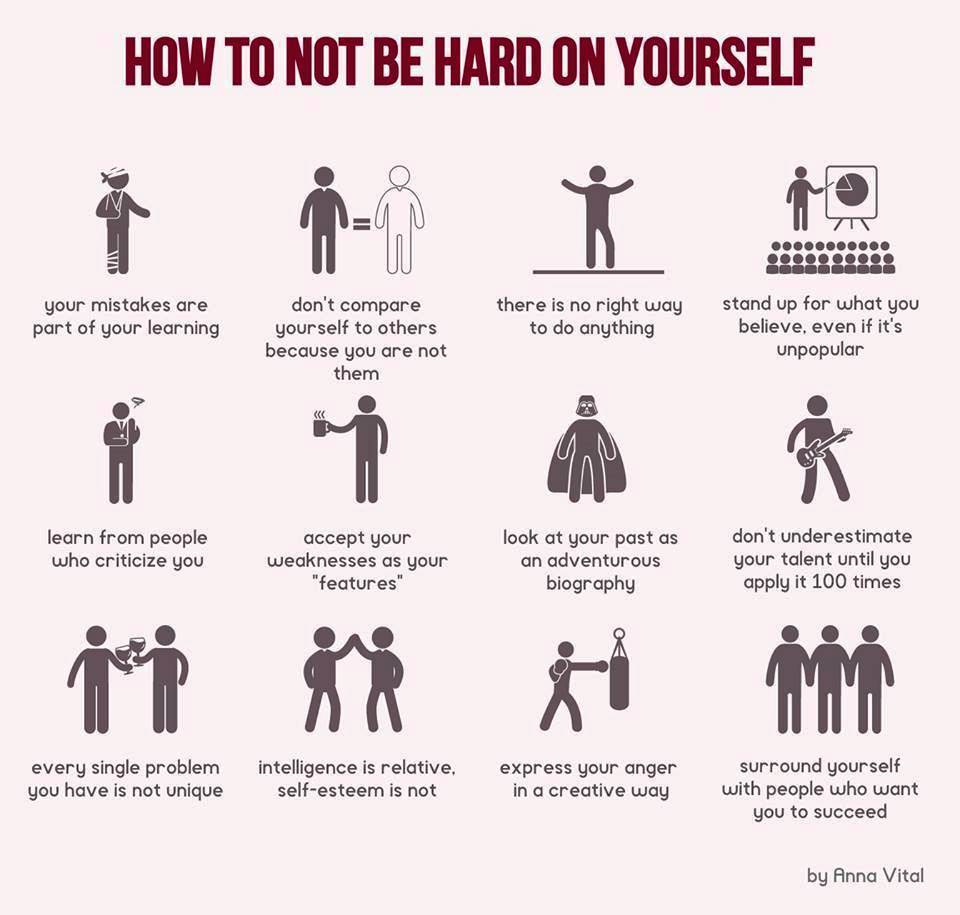Have you ever lost your temper at…yourself? Blamed and then beat yourself up a little inside for doing something you regret? Maybe you’ve been harsh with someone, only to be much harsher with yourself later?
It’s easy to be tough on yourself—we tend to do it much, much more than we realize. But what if there was a better way? When we forgive ourselves, accept our perceived flaws, and show ourselves kindness, we practice self-compassion.
What is Self-compassion?
Self-compassion is the ability to turn understanding, acceptance, and love inward. While self-compassion may seem like an act of self-indulgence, but extending compassion toward oneself is not an act of self-indulgence, selfishness, or self-pity. In fact, self-compassion can help relieve many mental health concerns such as anxiety or insecurity.
Self-compassion has three elements.
- Self-kindness means treating our worth as unconditional even when we fall short of our own expectations, whether it’s through our behaviours or even just our thoughts
- Common Humanity; recognizing one’s own humanity, or the fact that all people are imperfect and all people experience pain.
- Mindfulness; aware of our own hurtful thoughts and emotions without blowing up their significance through rumination

How to practice self-compassion?
Greater self-compassion may be developed through a variety of exercises, as well as through therapy. It may be helpful to frame self-criticism as a critique that might be given to a friend. If the words are too harsh for a loved one, then they are likely also too harsh for the self. In general, people tend to be more accepting of the flaws of others than they are of their own. But by reconstructing diminishing or harsh critiques of one’s flaws and being aware of one’s own humanity and therefore, imperfection, greater self-compassion can be reached.
- Treat Yourself as You’d Treat a Friend: One good place to start is by thinking about how we would treat others that we care about. Let ourselves make mistakes. Giving ourselves permission to be human once in a while is one way to accept our flaws, and remind ourselves that we’re not alone in being imperfect. Care for ourselves as we’d treat others.
- Becoming More Self-Aware: Other techniques relate to being more self-aware and tapping into our self-talk. Compared to ‘beating ourselves up for beating ourselves up, becoming aware of our internal narratives is a positive starting point for changing our self-talk.
- Use ‘Releasing Statements’: Maybe you’ve never been a big fan of positive affirmations. Maybe they don’t feel natural or you believe they don’t quite ‘reach’ your Inner Critic at a subconscious level. If that’s the case, you might try what is colloquially referred to as ‘releasing statements’. These are closely related (if not equivalent) to mini-exercises in self-forgiveness and tap into the mindfulness concept of detached non-judgment. When you catch yourself thinking a negative thought like “I’m such a horrible person for getting upset”, try turning it around and ‘releasing’ yourself from the feeling. Instead, try “It’s okay that I felt upset”.

- Try self-acceptance. This means embracing our own perceived shortcomings as well as our character strengths. Self-compassion is about not over-inflating these shortcomings into a definition of who we are—rather, thoughts and feelings are behaviours and states.
- Practice mindfulness: Mindfulness practices are a good way to centre ourselves at the moment. Not only is mindfulness one of self-compassion’s core constructs, but a lot of exercises such as yoga and deep breathing can be used anytime, anywhere.
- Try not to judge yourself too quickly: Stop assuming you’ll behave a certain way. It’s easy to assume things like “I get really grumpy and antisocial on flights”, which sometimes precludes the possibility that you’ll act a different way. This is once again about treating yourself as you would others, and just a future-focused way to give yourself the benefit of the doubt
- Let go of the need for outside validation: Author Dani DiPirro of Stay Positive, The Positively Present Guide to Life suggests that lots of our negative thinking come from how others perceive us. If we’re beating ourselves up for eating something, for instance, a lot of that self-directed anger stems from social pressures, like the pressure to look a certain way or maintain a certain weight. Choosing not to tie our happiness to outside influences.
- Reaching out to others: This might sound like the opposite of the above, but in fact, this technique is more about placing your feelings in context. When we talk with others, we realize that we’re not alone in feeling pain at different times. It’s an important part of reaffirming our sense of connectedness, reframing our perceived problems within the ‘bigger picture, and building social support networks that are invaluable to well-being.
If you’re struggling to foster self-compassion in your professional and personal life, don’t beat yourself up about it. With a little practice, you can do better.
Call/WhatsApp Ms Seema Agarwal: +91 98205 76682

